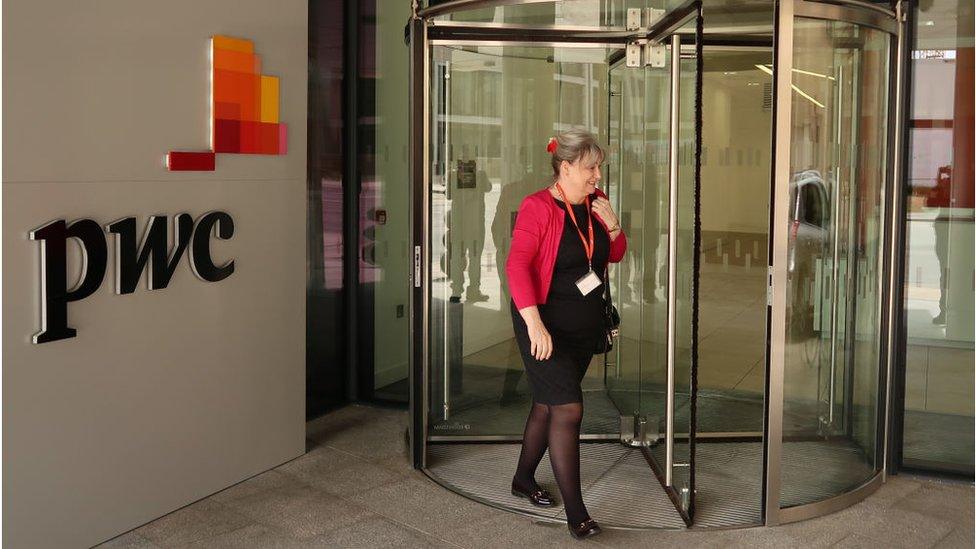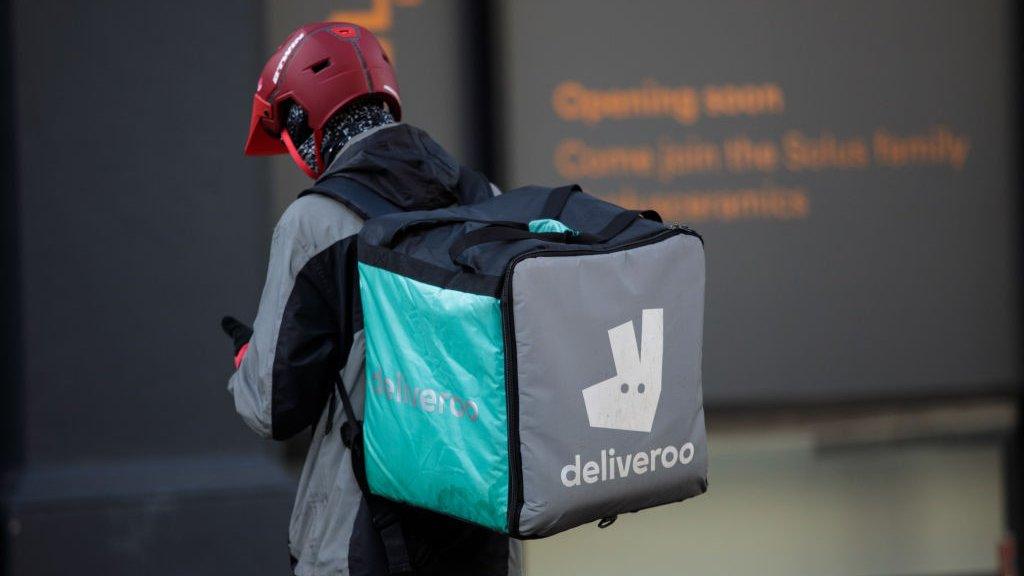Oxfam Cymru: 'Flexible working would combat poverty'
- Published

Homeworking is not the only type of flexible employment
"When I'm needed for [my children] I can make that happen. I don't feel guilty about it because I know what I put in is my absolute best."
Full-time marketing director Dawn Bratcher works her hours at all times of day when it suits her, enabling her to take her two primary age children to medical appointments and school events.
New research for Oxfam Cymru suggests the best way to combat poverty is to help women work to their full potential if they want to, and improved flexibility such as that enjoyed by Mrs Bratcher is key to this.
'Drastic need'
Nearly one in four people in Wales live in poverty and women are more likely than men to be in low-paid, low-skilled, part-time or insecure work, and juggling caring responsibilities.
Oxfam Cymru is calling on more employers to take a flexible approach to address a "drastic need" for what it calls more "decent work" for women in Wales.
More controversially it also called on the Welsh Government to insist that its suppliers on public contracts should pay their workers a so-called "real " living wage of £8.75 an hour.

PR firm Cowshed marketing director Dawn Bratcher works flexibly - something Oxfam Cymru wants more employers to embrace
The recommendations stem from three separate but linked pieces of research commissioned by the charity from the Institute for Welsh Affairs, Cardiff Metropolitan University and Chwarae Teg.
Other key recommendations were that the Welsh Government should:
support co-operatives to help to provide childcare and care for older people to make it easier for women to work full time;
educate employers about the benefit of enabling new mothers to return to work with reduced hours;
encourage collaboration between Job Centre Plus and other organisations to expand the number of flexible, good-quality, part-time jobs made available.

Rachel Cable from Oxfam Cymru says flexibility can improve productivity and employee loyalty
Clearly not all jobs lend themselves to the level of flexible working enjoyed by Mrs Bratcher.
Many employers, particularly in the retail and service industries, need to know employees will be at work at specified times, but flexibility , externalcan also include working early or late shifts for example.
Rachel Cable, the head of Oxfam Cymru, said that if employers focused more on what employees achieved rather than the hours that they were physically in work, they would reap benefits in terms of more productivity, loyalty and team spirit.
The release of the research coincided with an assembly debate on the Equality Committee's report on parenting and employment. , external, which also recommended a range of measures to help expand flexible working in the public and private sector.
A Welsh Government spokeswoman said it was committed to creating prosperity for all and that the new Fair Work Commission would look into promoting fair work in Wales, including how to tackle barriers to work for women.
"The commission has already begun gathering evidence and is expected to report back with recommendations in the spring," she said.
Division of labour
A Yougov survey of UK workers - men and women - released last month found four in 10 work flexibly in some form or another, such as job sharing or compressed hours.
But women do almost 40% more unpaid work in the home than men, according to research by the Office for National Statistics in 2016.
Mrs Bratcher was keen to point out her husband, who works full-time, is very supportive of their family life.
But while more women continue to do the heavy lifting at home, Oxfam Cymru is pushing for the Welsh Government and employers to help them level the playing field at work.
- Published21 August 2018

- Published30 August 2018

- Published30 July 2018
